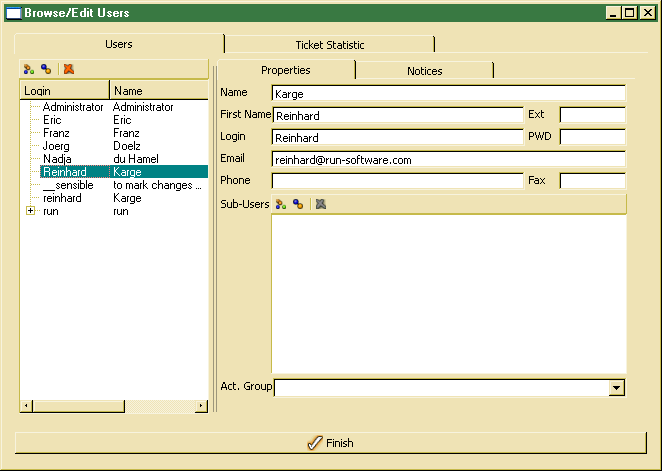User administration and user groups
ODABA supports a user administration and access control model (administration model). The administration model allows to manage user and user groups. ODE tools do not support access control, but provide several actions associated with user settings.
Mainly option settings, notices and notifications are referring to user definitions. In order to be able to sent notifications to other members of the developer team or for using private option settings, users should be defined. When no users are defined, there are default assumptions for a default user.
By default, the system tries to locate the user from the system login name. In order to run ODE tolls with a different user, one may set the user name as option (_USER_NAME) in the configuration or ini-file used for starting the application.
In order to update or maintain user properties, most ODE tools provide a Options/Users action in the main menu.
The login name is the name that is used for system login or that has been set in the ini-file when starting the application. The login name is used for assigning different action to a certain user. In order to send notices as notifications to other users, the email address has to be filled in.
The notice tab shows the list of all notices assigned to the user as notice creator, receiver or processor. Ticket statistics is mainly intended as a useful demonstration of the plot user control. Statistics work properly, when the required JAVA library for Jgplot has been installed properly.


